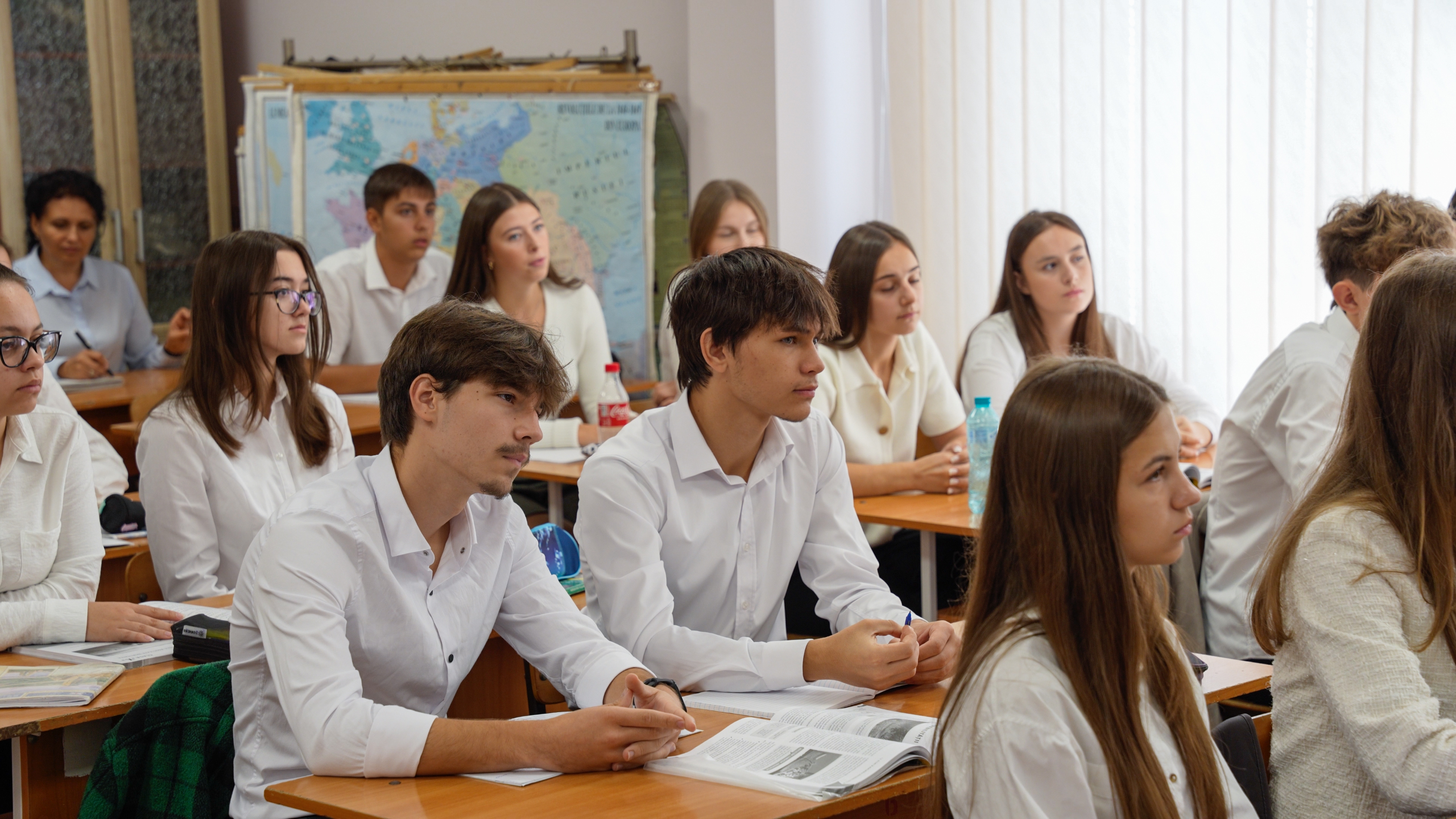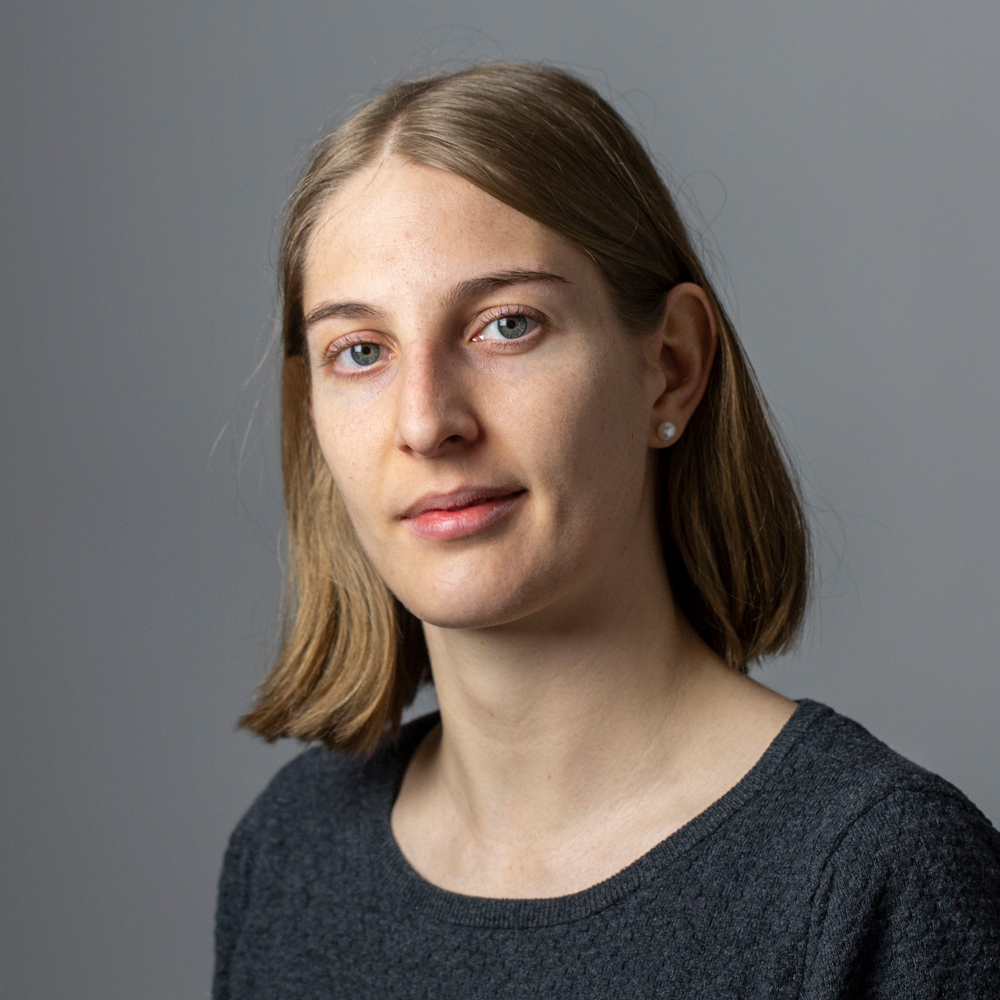
How the poorest country in Europe is integrating 120,000 Ukrainian refugees
No country has taken in as many Ukrainian refugees relative to its population as the Republic of Moldova. International organisations play an important role in supporting Ukrainians there. SWI swissinfo.ch visited a Swiss Red Cross partner project in the north of the country.
“Psychological support is more important than other everyday needs,” says Anna Antipova. Antipova works as a psychologist with Ukrainian refugees and is herself a refugee from Ukraine. She is employed by Casmed, an alliance of non-governmental organisations in northern Moldova, in a project supported by the Swiss Red Cross.
Casmed has also benefited from donations from Swiss Solidarity – the humanitarian arm of the Swiss Broadcasting Corporation (SBC), the parent company of SWI swissinfo.ch.
Ukraine on three sides
Antipova lived in Odessa until the start of the Russian invasion in February 2022. Odessa can be reached by car from Balti in the north of Moldova in 4.5 hours and the country’s southern border is only 50 kilometres away. Ukraine lies to the south, north, east and north-west of Moldova. Almost a million Ukrainians have fled to neighbouring Moldova since the start of the Russian invasion.
Until 2022, Casmed provided medical support to disadvantaged, elderly Moldovans. Since then, its field of activity has expanded.
“We understood that we had to show solidarity and provide as much support to the refugees as we could,” says Natalia Postolachi, the director of Casmed. “With the help of international donors, such as the Swiss Red Cross, we were able to offer support to thousands.”
The Swiss foreign ministry emphasises that a large part of the support provided within the framework of international cooperation benefits both Moldovans and refugees from Ukraine. The Swiss Agency for Development and Cooperation is supporting projects benefiting Ukrainians in Moldova to the tune of around CHF5.9 million in 2024. This includes CHF 120,000 for support in legal matters, CHF1 million for access to quality health services, and CHF1.24 million for labour market integration; a similar amount was allocated to a “Social Cohesion and Peace Initiative” and a support and inclusion programme for women.
The Swiss Red Cross invested CHF2.5 million in Moldova in 2022. In subsequent years, the figure was around CHF2 million. In 2024, almost 40% of this money will be spent on the consequences of the conflict in Ukraine. In addition to the Red Cross, other Swiss civil society actors are also active in Moldova, including the aid organisation HelvetasExternal link, which also supports Ukrainians.
For the majority of refugees, Moldova was a transit country but many stayed. According to UN Refugee Agency (UNHCR) figures, 123,730 refugees from Ukraine were living in Moldova at the end of September 2024. That’s around 5% of the total population. By comparison, 67,160 Ukrainian refugees are currently living in Switzerland, which corresponds to about 0.7% of the population.
For one of the poorest countries in Europe, it is a challenge to support and integrate so many people. International donors and partner organisationsExternal link play a major role. UN agenciesExternal link alone have spent over $215 million on the Ukrainians in Moldova. In addition to the Swiss Agency for Development and Cooperation, the Swiss aid organisation Helvetas and the Swiss Red Cross are also present.
For one of the poorest countries in Europe, it is a challenge to support and integrate so many people. International donors and partner organisationsExternal link play a major role. UN agenciesExternal link alone have spent over $215 million on the Ukrainians in Moldova. In addition to the Swiss Agency for Development and Cooperation, the Swiss aid organisation Helvetas and the Swiss Red Cross are also present.

More
Embezzled funds test Swiss-Moldovan relations
Ukrainians shocked by Moldovan living standards
According to Postolachi, some Ukrainian refugees were shocked by the poor infrastructure in rural parts of Moldova. “Eighty percent of the villages in the countryside have no proper infrastructure, such as running water,” says Postolachi.
Before the Russian invasion, Moldova was poor compared to Ukraine. “Over time, the refugees have come to appreciate the significance of our solidarity despite our poverty,” she says. Although they encounter a lower standard of living here than in countries such as Switzerland, some Ukrainians choose to remain in Moldova.
“They feel very comfortable in our environment,” Postolachi says. “This society is more familiar to them than those elsewhere in Europe. And some have roots in Moldova.” However, she adds, parts of the Ukrainian minority that have been living in Moldova for a long time are critical of the refugees.
Cars with Ukrainian licence plates are common on Moldovan roads – even in the breakaway region of TransnistriaExternal link, where Russian flags fly. The proximity to Ukraine makes it possible to visit and, in some cases, support relatives.
Postolachi says that although Casmed has had documents translated into Ukrainian, Russian is the language most in demand. Eighty-four percent of the more than 4,500 Ukrainians interviewed by the UNHCR in Moldova speak Russian (among other languages). In Poland, the same survey revealed that only 51% of Ukrainians there speak Russian.
Russian is still spoken in parts of Ukraine, for example in the Odessa region. Russian is also an important language in Moldova. Although the official language is Romanian, Russian remains the most widely spoken language in the Balti region. Like Ukraine, Moldova was once part of the Soviet Union.
The Swiss foreign ministry describes relations with Moldova as “very good” and increasingly intensive. According to the ministry, Switzerland was one of Moldova’s “most important bilateral donors in 2023”.
Switzerland’s earliest involvement in Moldova was in the health sector, while other areas of activity include economic development and local governance.
Since the beginning of the war in Ukraine, Switzerland has also contributed support for Ukrainian refugees in Moldova. Among other things, Swiss funds are channelled into democracy education, which has been an integral part of school education for the past five years.
Switzerland is therefore among those helping to shape the development of democracy in Moldova.
The UNHCR surveyExternal link also shows that the level of education of Ukrainian refugees in Moldova is lower than of those who fled to Poland or the Czech Republic: For example, only 3% of the Ukrainians surveyed in Moldova have a master’s level education or higher. In Poland it is 19% and 17% in the Czech Republic.
More than a quarter of those who fled to Moldova are already of retirement age. In Poland, on the other hand, only 14% belong to this age group and the proportion is 12% in the Czech Republic. The higher proportion of pensioners among Ukrainians in Moldova is probably partly due to geographical proximity.

More
Schoolkids ready for Moldova’s democracy – with Swiss help
Casmed’s original expertise lies in caring for the elderly. The Swiss Red Cross had been working with Casmed for a long time when the Russian invasion began and Moldova became a country of arrival for refugees. Today, Casmed helps Ukrainians find accommodation and offers practical vocational training, Romanian language courses and psychological counselling.
The importance of psychological help
Antipova is employed full-time at Casmed. She has no shortage of work and has set herself a challenging goal: she not only wants to help her patients deal with their current situation but also give them the resources to carry on when they return to Ukraine. And she wants to give them the tools to support others. After all, many refugees, including Antipova herself, have relatives or partners in Ukraine who have no access to therapy. Even those who have fled to other European countries often lack access to mental health support.
Some Ukrainians who have fled to Moldova view the situation as temporary. They continue to encourage their children to attend online lessons at home but many are preparing to stay in Moldova. They send their children to school, take advantage of vocational training programmes and attend Romanian language courses because it is uncertain when the war will end and what the situation will be like afterwards. There is a possibility that in five- or ten-years’ time, their children will see their futures in Moldova not Ukraine.
At the end of the year, the Swiss Red Cross will cease its support for Casmed and instead co-operate more closely with the Moldovan Red Cross. Postolachi is optimistic but acknowledges that her organisation is experiencing a challenging time, full of uncertainties.
Edited by David Eugster. Translated from German to English by Catherine Hickley/ac.





























You can find an overview of ongoing debates with our journalists here . Please join us!
If you want to start a conversation about a topic raised in this article or want to report factual errors, email us at english@swissinfo.ch.